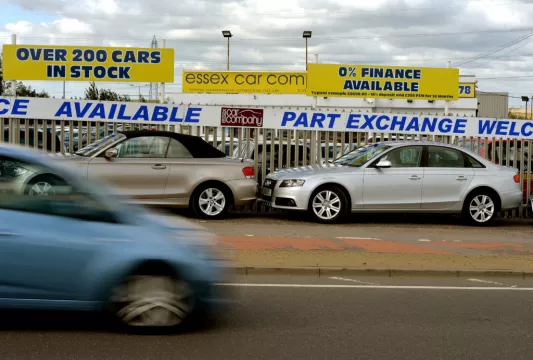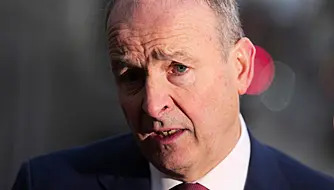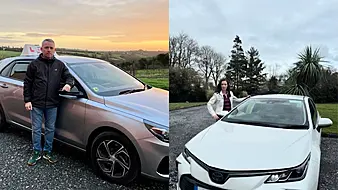New car sales fell 17.8 per cent in January compared to the same month last year as the motor trade faced lockdown restrictions that limited sales operations to ‘Click-and-deliver’ services. However, there was a rise in used car imports, despite the impact of Brexit.
January new car registrations totalled 25,191 compared to 30,650 for the same month last year.
In what is traditionally the busiest month for new car sales, the market was only down just 7.8 per cent up to January 30th but suffered a major drop on the last day. Last year, registrations for January 31st totalled 3,333, while this year there were only eight cars registered on the day, strongly impacting on the end of month total.
Used imports
Used car imports rose 3 per cent in January compared to last year, despite the impact of more complex regulations due to Brexit and the application of stricter emissions rules, particularly on older diesel imports.
Total used imports came to 6,824, compared to 6,622 in January last year. Volkswagen, BMW and Audi were the most popular imported brands, but the Ford Focus was the most imported used car, ahead of the VW Golf and BMW 5 Series.
The majority of imports are over four years old, while 55 per cent are diesel. Just 69 of the 6,824 imports were all-electric vehicles.
In the new car market, the best-selling brand was Toyota with 3,777 registrations, ahead of Hyundai with 2,731, Volkswagen with 2,547 and Ford with 2,295.
The most popular model this year is the new Hyundai Tucscon, ahead of the Toyota’s Corolla and Rav4. Toyota has four cars in the top 10 most popular models, while Hyundai and Volkswagen have two, and Skoda and Ford with one each.
At the premium end of the market, Mercedes-Benz overtook Audi to become the best-seller, with 710 new sales, compared to 699, with BMW in third place with 686. The Mercedes-Benz E-Class is the best-selling premium car with 237 registrations, ahead of the BMW 3 Series with 164.
According to Tom Cullen of Simi: “Strong pre-orders coming into the New Year and the ability of the Industry to provide both on-line shopping and a click and deliver service, has mitigated somewhat against the full impact of the pandemic in January.”
Hybrid growth
The fall-off in diesel sales continues, and it now accounts for 35.85 per cent of sales, just ahead of petrol on 34.7 per cent. Five years ago diesel accounted for 70 per cent of sales.

Hybrids now make up over 25 per cent of all new car sales, while fully-electric models represent 3.9 per cent. January saw 981 new all-electric cars registered, compared to 891 for the same month last year.
Even in rural areas the shift towards hybrids is apparent. In Kerry, for example, hybrids - both regular and plug-in PHEVs - now account for 24 per cent of new sales, compared to just 1.5 per cent in 2016, while the percentage of diesel sales has dropped to 43 per cent from 73 per cent in the same period.
New car sales to private customers fell by 19.75 per cent compared to last January, but the biggest falls were to leasing and contract hire companies, down 45 per cent, and to corporate customers, down 22 per cent.
In the commercial vehicle market, January saw 5,033 new vans registered, a drop of 10.9 per cent on last year, while truck sales fell 4.5 per cent to 340 new vehicles.







